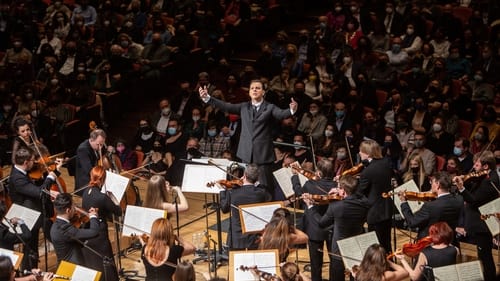
Conductor
Ludwig van Beethoven headed for Symphony No. 9 literally his entire life. As early as the 1790s, he had an eye on Ode to Joy, perhaps the most well-known poem by Friedrich Schiller, written on the threshold of the French Revolution (1786). In his mature and, in particular, later years, the deaf composer with an acute ‘hearing vision’ increasingly distanced himself from conventional forms and genres and wrote parts beyond the possibilities of instruments of his day. He nurtured the idea of a symphony with a choir for at least several years. The history of the Ninth’s interpretations includes 200 years of staggering revelations and lingering stagnation. Performed by the musicAeterna orchestra, choir, and guest soloists under the baton of Teodor Currentzis, Beethoven’s opus magnum acquires the original poignancy and energy of a recent discovery.

Conductor
Guiseppe Verdi’s Requiem is still heard mainly in theatre and concert halls. However, the author himself intended this composition to be performed in church, and on special occasions. Conducted by Teodor Currentzis and performed by soloists and musicAeterna choir and orchestra, Verdi’s famous funeral mass returns from the concert stage to Milan’s Church of San Marco, the same place where it was premiered in 1874. The seven parts of the Requiem become steps on the way to comprehending the sacrament of death, the operatic character of orchestral and vocal writing acquires the strictness of the Catholic tradition, and musical images of rage, despair, and rebellion against the inevitable end are crowned with appeasement.

